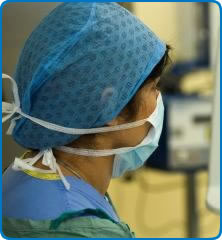Following assessment, adaptive equipment is sometimes supplied to you for use at home following discharge. This may include items such as commodes, trolleys, perching stools, toileting equipment, chair & bed raisers and hoists. The equipment is issued on loan, without charge, and will either be delivered or given to you, a friend or relative to take home.
Equipment on loan is supplied by Medequip (Community Equipment), who should be contacted to request a repair or arrange collection of equipment. Please do not return any equipment to our hospitals.
Returning Equipment
If you have already benefited from equipment loaned to you that you no longer need, Medequip can arrange a free collection, to recycle and help others in need. Contact Medequip on 0330 053 3655 or email bnssg@medequip-uk.com.
Return to Medequip yourself:
Emersons Green
Unit 105
Farendell Road
Emerald Park East
Emersons Green
Bristol
BS16 7FF
Weston-super-Mare
Unit 7 Weston Industrial Estate
Lynx Crescent
Weston-super-Mare
BS24 9DJ
Opening Hours: 8:30am to 5:00pm Monday - Friday
For other areas please see Medequip’s website medequipuk.com
Alternative ways to access equipment
Individuals in the community who have not had recent intervention from a hospital Occupational Therapist, but require a review of existing equipment or feel some new equipment may assist them, have various options.
Contact Bristol Social Services department
Care Direct: 0117 9222700
Email: adult.care@bristol.gov.uk
www.bristol.gov.uk/housing/disabled-adaptations
Contact South Gloucestershire Social Services department
Adult Care Customer Services: 01454 868007
Email: csodesk@southglos.gov.uk
www.southglos.gov.uk/health-and-social-care/care-for-adults
Contact North Somerset Social Services department
Care Connect: 01275 888801
Email: care.connect@n-somerset.gov.uk
Contact the Red Cross to enquire about hiring equipment
Telephone: 0117 3012606
www.redcross.org.uk
Bradbury House
Caxton Business Park
83 Tower Road North
Warmley
Bristol BS30 8XP
Contact WE Care & Repair
Telephone: 0300 3230700
Email: info@wecr.org.uk
http://www.wecr.org.uk/
Wheelchairs
If a hospital inpatient requires a wheelchair for long term use (over 6 months) they will be referred to the Bristol Centre for Enablement for assessment (there are specific criteria that have to be met)
If you need a wheelchair for short term use (under 6 months), hospital and community patients will normally be directed to the Red Cross (contact number above). You can also purchase or hire wheelchairs from many local mobility shops.
If you are registered with a GP in Bristol, South Gloucestershire, North Somerset or BANES and feel you need a long term wheelchair but are not a hospital inpatient, please ask your GP to refer you to the Bristol Centre for Enablement Wheelchair and Special Seating Service.

